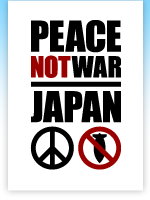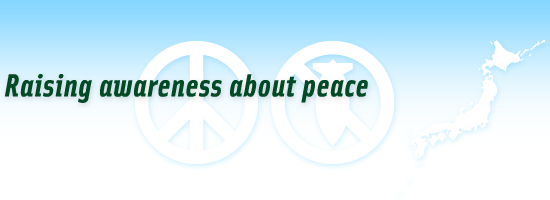Dark days & troubled times
We, the peoples of the world, continue to live through troubled times. In recent years, unresolved conflicts across the planet have snowballed in scale, some spilling into outright warfare. Throughout the Middle East, across parts of Africa, in South Asia and the Korean peninsula, many of these problems have become worse instead of better. ‘Developed’ countries such as the US, Japan, Australia and those of the EU are often deeply involved in these conflicts – either through having caused them, attempting to resolve them or suffering the fallout from them.
The war machines get bigger, small arms proliferate in ever greater numbers, the gap between the world’s rich and its poor becomes a huge chasm, and the threat posed by human-caused climate change seems to grow by the day.
From a number of perspectives, the outlook on tomorrow seems bleak. It is more important than ever to find new and creative solutions to these problems if we are to collectively pull ourselves back from the brink and move forwards.
Seeds of hope
However, you can’t have night without the sunlight that follows it. There are fortunately many seeds of hope for a better future scattered across the globe and many voices speaking out against these dark days – with solutions to problems, messages of awareness and calls for peace.
One such seed began to sprout in the UK in 2001. Known as Peace Not War (PNW), the initiative began collecting songs from some of these voices and releasing them on CDs. The collections were used to raise awareness about the state of the modern world and to provide funding for groups working in the international peace movement. They have acted to redefine protest music for the 21st Century.
In 2004, PNW asked me to help put their CDs out in Japan. As I took this idea around Tokyo, it became clear that there was a call for a similar project in here too. Peace Not War Japan (PNWJ) was born then, with the search for Japanese voices against war and calling for peace.
Japan and conflict
Post-war Japan has been both a peaceful country and a highly prosperous one. It is often considered as the most technologically advanced society on Earth and in the world’s Top 5 industrialised economies. This has not always been the case, as a massive and wholesale transformation of the country occurred within the space of a generation, during the decades that followed the Second World War.
In the early 20th Century Japan sought to become a colonial power, much like the European ones of that same era. Many grave acts were committed across Asia in the name of Japanese imperialism. Yet it also suffered heavily in the global conflict of the 1940’s.
During the final year of WWII, Tokyo was hit by the worst air raid in history at that time. The firebombing destroyed much of the city and instantly killed an estimated 100,000 people. In April of that same year, the Battle Of Okinawa killed about 260,000 people, almost half of who were local civilians. Then, on August 6th 1945, the first Atomic Bomb was dropped on the city of Hiroshima, with a second one detonated over Nagasaki three days later. An estimated death toll from these two bombs is around 210,000.
The nuclear genie was let out of the bottle and has yet to be put back in, as more and more countries have developed nuclear weapons systems in recent years.
Peace in Japan
Japan has a longstanding peace movement. The post-war Constitution enshrined the renounciation of war and the use of force in resolving international conflicts. After the bombings of Hiroshima and Nagasaki, many groups emerged that opposed nuclear weapons. The growth of nuclear pacifism helped inspire the global antinuclear movement. During the Vietnam War era, new grassroots initiatives emerged, including student protests and civil disobedience.
Peace Boat was founded in 1983 by a group of students who were angered by their government’s censorship of history textbooks and it is now one of the largest NGOs in East Asia. They take a passenger ship around the world promoting peace, human rights, sustainable development and the environment. Recently, a new generation has also made themselves heard. They opposed the 2003 invasion of Iraq, and organised large protests using text messages and the Internet.
Why PNWJ?
PNWJ exists to raise awareness in Japan of peace, war and conflict around the world and to help those that are working towards a better world. It contributes a Japanese soundtrack to today’s global peace movement. It enables Japanese musicians to join an international community of artists speaking out for peace and against war, plus offers a gateway for international artists looking to spread their message of peace in Japan.
In 2006, PNWJ released the first collection of Japanese artists making creative responses to today’s global concerns, issued in Japan by Tokyo’s Dynastic Records. The music came from across the country and spanned many genres, from rock and folk, through dub to breakbeat and hip-hop. It was well received by listeners, musicians and peace groups alike.
2007 sees PNWJ move into live events and building a national peace group network. We also aim to make charitable donations to organisations working to raise awareness, building understanding between peoples and using non-violent solutions to end conflict.
New volunteers are always welcomed. If you are an interested musician, a peace group keen to work with us or would like to be part of our organisation, please see the ‘Help’ page for more information or contact us directly: info[at]pnwj.org
Dom Pates (Founding Director), Tokyo '07






